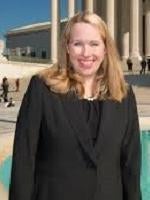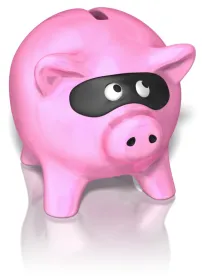Supreme Court grants certiorari to clarify whether Section 2462’s five-year limitation period applies to SEC disgorgement claims.
The US Supreme Court granted certiorari to settle a circuit split in the US courts of appeals over whether the five-year statute of limitations in 28 U.S.C. § 2462 applies to claims for disgorgement in US Securities and Exchange Commission (SEC) enforcement actions.
Background
Disgorgement is an equitable remedy used to deprive a defendant of “unjust enrichment” or “ill-gotten gains.” For example, in an insider trading case, the SEC typically seeks an order requiring the defendant to disgorge illicit profits (or losses avoided) as a result of the improper trading. Section 2462 provides that “[a]n action, suit or proceeding for the enforcement of any civil fine, penalty, or forfeiture, pecuniary or otherwise, shall not be entertained unless commenced within five years from the date when the claim first accrued.”
In Gabelli v. SEC,[1] the Supreme Court held that monetary penalties sought by the SEC constitute a “civil fine, penalty, or forfeiture” subject to a five-year statute of limitations. However, the Court expressly reserved the question of whether Section 2462 applies to claims for “disgorgement.”[2]
Circuits Split Over Disgorgement Statute of Limitations
After Gabelli, the US Court of Appeals for the Eleventh Circuit held in SEC v. Graham[3] that “disgorgement” fell within the ordinary meaning of “forfeiture” and was subject to the Section 2462 statute of limitations.
In SEC v. Kokesh,[4] the Tenth Circuit disagreed with the Eleventh Circuit, concluding that disgorgement was remedial, not punitive, and therefore did not constitute a “forfeiture.” With its decision in Kokesh, the Tenth Circuit joined the First Circuit and DC Circuit in holding that disgorgement sought by the SEC is not subject to the five-year statute of limitations.[5]
The Supreme Court granted certiorari to resolve this circuit split.
Implications of Supreme Court’s Decision
The facts of Kokesh confirm the importance of the Supreme Court’s decision on this matter. In Kokesh, the SEC in 2009 filed a civil enforcement action alleging violations of the federal securities laws from 1995 through 2006. Following a jury trial, the SEC received a judgment ordering disgorgement of $34.9 million based on acts dating back to more than 14 years before it filed suit. However, if the Supreme Court decides that Section 2462 applies to disgorgement claims, then the SEC would be limited in Kokesh only to disgorgement of money taken after 2004—approximately $5 million.
The Supreme Court’s decision will significantly affect the financial exposure faced by targets of SEC enforcement actions, given that disgorgement fines often cover patterns of fraudulent activity occurring over an extended period of time. The SEC brings hundreds of enforcement actions each year and seeks disgorgement in most cases where that theory is available. Petitioners warn that if the Court affirms the Tenth Circuit’s judgment in Kokesh, then defendants will be exposed to enforcement for an indefinite period into the future, and “enforcement actions seeking disgorgement may reach back forever.”
If the Court reverses the Tenth Circuit’s judgment and adopts the position of the Eleventh Circuit in SEC v. Graham, then the SEC will face increased pressure to conduct its investigations quickly and file enforcement actions more readily—knowing that delay will not only lead to foregone civil money penalties but also prevent it from reaching back more than five years for disgorgement. To avoid the limitations bar, the SEC might also seek to characterize fraudulent conduct as a single, ongoing act, rather than separate and discrete acts.
Timeline
The Supreme Court will likely hear oral argument in its April sitting. If argument is heard in April, then the case will likely be decided by the end of the Court’s October 2016 Term in July.
[1] No. 11-1274, 133 S. Ct. 1216 (2013).
[2] Id. at 1220 n.1.
[3] No. 14-13562, 823 F.3d 1357 (11th Cir. 2016).
[4] No. 15-2087, 834 F.3d 1158 (10th Cir. 2016).
[5] See Riordan v. SEC, 627 F.3d 1230 (D.C. Cir. 2010); SEC v. Tambone, 550 F.3d 106, 148 (1st Cir. 2008).




 />i
/>i

